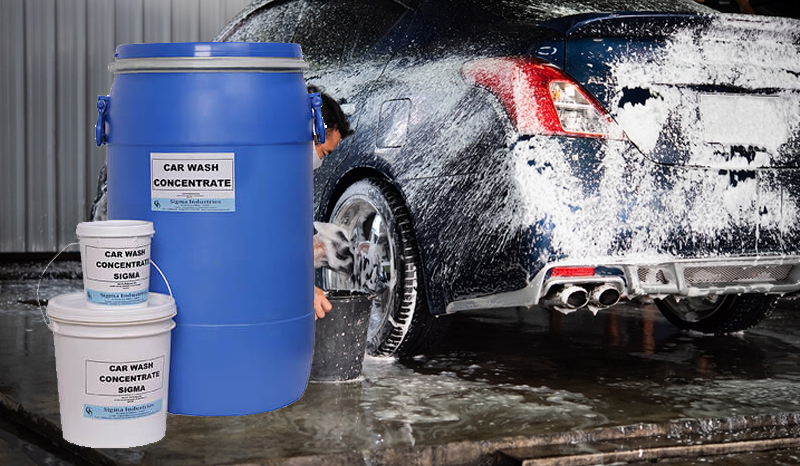
Automatic car washes have become a popular choice for vehicle owners due to their convenience and time-saving benefits. However, concerns have been raised regarding the use of harsh chemicals in these automated systems. In this blog post, we will delve into the topic and explore whether automatic car washes indeed employ harsh chemicals or if there are alternative methods in place.
- Understanding the Cleaning Process:
To address the question at hand, it is crucial to comprehend how automatic car washes operate. These systems typically consist of multiple stages, including pre-soaking, washing, rinsing, and drying. Each stage serves a specific purpose in removing dirt, grime, and other contaminants from the vehicle's surface. - The Role of Chemicals:
a. Pre-Soaking: Automatic car washes often employ pre-soak solutions that help loosen and dissolve stubborn dirt and debris. These solutions usually contain mild detergents or surfactants, which are designed to be effective yet gentle on the vehicle's paintwork.
b. Washing: The washing stage involves the application of a cleaning solution to further break down dirt and grime. While some automatic car washes may use stronger chemicals, such as alkaline-based cleaners, many modern systems utilize eco-friendly alternatives. These alternatives are formulated to be biodegradable and less harmful to the environment.
c. Rinsing: Rinsing plays a crucial role in removing any remaining cleaning solution from the vehicle's surface. Automatic car washes typically employ high-pressure water jets to ensure a thorough rinse, minimizing the presence of chemicals on the car.
d. Drying: Finally, the drying stage involves the use of powerful air blowers to remove excess water from the vehicle. This step does not typically involve the use of chemicals.
- Environmental Considerations:
Automatic car washes are increasingly adopting eco-friendly practices to minimize their impact on the environment. Many establishments now use water recycling systems, which treat and reuse water, reducing overall water consumption. Additionally, the shift towards biodegradable cleaning solutions helps mitigate the environmental impact associated with chemical runoff. - Consumer Safety:
While automatic car washes may use chemicals during the cleaning process, the concentrations are generally diluted to safe levels. Additionally, the use of mild detergents and eco-friendly alternatives helps minimize any potential harm to the vehicle's paintwork or the environment. It is important to note that the chemicals used in automatic car washes are regulated and approved for safe usage.
Conclusion:
Contrary to popular belief, automatic car washes do not necessarily rely on harsh chemicals. Many establishments have embraced eco-friendly practices, utilizing milder detergents and biodegradable alternatives. These advancements ensure effective cleaning while minimizing environmental impact. As a vehicle owner, you can confidently opt for automatic car washes, knowing that they prioritize both cleanliness and sustainability.

